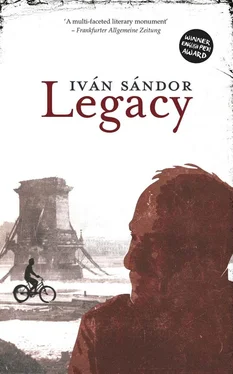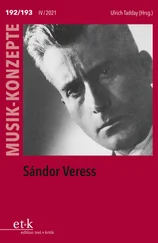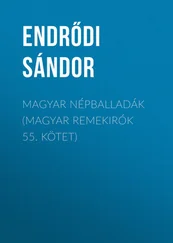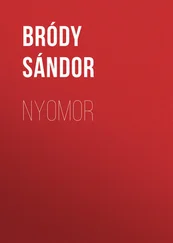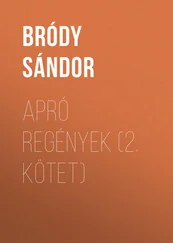I ought to ask Misi. I put in another call to Mádi in Paris. Good timing, she says; my brothers will be paying a visit this evening. Misi has no recollection of where he met me, but the next day he says he is sure he went to the Alice Weiss Hospital, where my parents and yours were, and he also went to Amerikai Road, but he is quite sure that he did not go to Francia Road.
Mother reads my letter, sitting on a mattress in the basement of the hospital. She has to screw up her eyes to read, her glasses having broken long ago. Jolán Bors is standing beside her. Father bends forward as he looks at Mother; he is also sitting on the mattress and has to bend close in order to hear what Mother is reading because a dying patent next to them is wheezing stertorously. Nurses are racing about between those lying on the mattresses on the ground. There are no bedpans, they are yelling, they are not able to set up infusions for anyone. The head physician, Dr Temesváry, arrives by way of the steps; he is podgy, and his white gown is tight on him. He pays a call to everyone in turn, assistants — two plump nurses — in trail. Mother folds my letter; in her knapsack is a small pocket, which is where she hides it next to the letter I sent from Mihály Munkácsy Street.
It never occurred to me what my parents thought about what would become of me when their column left the Óbuda Brickworks. What did they think about, I wonder, when the ambulance brought them to the hospital and they were lying among the dying? These are not the sorts of things one can ask about, in just the same way as they never asked me what I had thought about them when I was left on my own.
On 15 December Carl Lutz gets news that Giorgio Perlasca, passing himself off as the Spanish Consul-General, had taken part in the rescue work and called upon the papal nuncio, Angelo Rotta, to threaten Hungary’s Arrow Cross government that diplomatic relations would be broken off if they did not abandon the mass murder. I cannot do that without instructions from the Vatican, he says.

Rákóczi Square, in the VIIIth District just off the main ring of the Outer Circle, is covered in litter. It is February, and the temperature is 5 degrees below freezing; the time is eight o’clock in the evening. I set off from the square down Miksa Déri Street. The entrances to the houses are barricaded behind dustbins. The reek of refuse and rust is pervasive. At the end of the block, at the junction with Víg Street, a man in a jacket is in discussion with a whore. Greasy locks of greying hair sprout from under his ski cap; the whore’s look is sympathetic. That was a long time ago, the man is saying, and the whore, seemingly remembering what was a long time ago, is nodding. Of course, it is possible that she is not a whore; maybe they are not holding a discussion, and it could be pure chance which has brought them together at this junction after decades. They are stamping their feet to keep warm; my feet are also cold, and the slush is splashing on to my trousers. On Nagyfuvaros Street, a few streets further on, a bus is in service and cars are being parked, yet, despite this being the city centre, it has the feeling of an outlying part of the world, a world of basements, a world of cellars.
I step into a house doorway. Six overflowing dustbins and enough rubbish all around them to fill a seventh. A child darts out of the stairwell and slips on the rubbish. Two young Roma men in their twenties come out wearing shabby but clean Adidas jackets. They wish me good evening and ask if they can be of any help. I tell them I’m just looking; there was a time when I lived around here. They would be glad to help, the taller man says. I thank them, but I can see that they are disappointed that I rejected their offer. They have sad looks on their faces. Come on, the taller one says, let’s get going.
The yard is tidier than the doorway. Three floors of outside corridors, gaps in the plaster. On the right is an unlit stairwell. Opposite is the back staircase, which in days past would have been used by servant girls, porters and postmen. The third floor has a vaulted passage, only the passage leads nowhere; all that can be seen is sky.
I note down the number of rubbish bins, the flight of stairs which leads nowhere, the grilled basement windows.
Nothing at all about the building seems to have changed over the past fifty-eight years.

We have to go up to the second floor. Vera stops at the landing on the first floor. It’s a good thing we are wearing two pullovers under our overcoats; it would have been even better if we could have had two pairs of hiking socks to put in our boots. It must be 10 degrees below. We keep beating our palms together.
On the second floor one has to knock on the door as the bell is not working. The stairwell is unlit, as is the apartment that we enter. We have to pass through two rooms in both of which are six iron bedsteads with another six fitted on top of them, all empty. In the third room a woman is sitting next to a standard lamp with a green lampshade. A man in a black hat and a scruffy raincoat is standing next to her. They introduce themselves, and the man moves to shake hands. He says he runs the home, and we must obey his instructions; there are times when these will be orders, he says; that is unavoidable. There are no girls here, he says to Vera; you will sleep with my wife. It’s best you go through next door straight away. The woman drags one leg. She leads Vera away.
They asked what we are called, nothing else. The boys are downstairs in the cellar, says the man. Everyone went down when an air-raid warning is in progress. The all-clear has already been given, I say. He did not hear it. Anyway it was better if they stayed in the cellar, he says; you’ll see what I mean when they come up. He points to one of the upper beds. I clamber up. Don’t unpack your haversack, he says. Why not? Are you parents still living? Yes. His parents are no longer alive. Can we stay here? Anyone will be able to get a place here as long as he and his wife are here. And how long will you be here? That I don’t know, he says.
The boys come up from the cellar, ten or a dozen of them. They are different from the ones I was with at Munkácsy Mihály Street, although it could be that the only reason I see it that way is that there is just a single candle to light the room, so I see their shadows rather than them. One of the boys is such a beanpole that when he is standing by my bed his head was above my palliasse. Empty it, he says. Why? Shut it! Just empty it out! I lie back and try to stuff my haversack under the blanket. He reaches for it, socks me on the jaw and snatches the haversack from under the blanket. I turn round and as I do so kick his head. That was not my intention, but I don’t regret it. He falls on his back. He picks himself up and yanks me off the bed. You’re best advised to clear your bloody haversack, one of the boys says. I can’t see their faces in the dark; the candle has almost burned out. He twists one arm behind my back and pushes the haversack into my free hand. Tip it out here. His is the lower bed. I raise the haversack, turn it upside down and shake it. When all my things are on his blanket he says put them back, one item at a time. Let go of my arm, I say. He does not let it go but does loosen his grip. I pack everything back. When I reach the shell he says leave that on the bed. The head of the home brings a new candle and lights it. I reach for the shell, but the boy is quicker. That’s mine, I say. What can it do to make it so important to you? It doesn’t matter, I say. It’s up to me to say what matters and what doesn’t. It carries voices, I say. What voices? Those of my parents, my parents’ friends, including what we are saying right now. There you are, that’s exactly the sort of thing I needed. But it’s mine. I need it, he says, again reaching for my arm. I let fly at his face with an elbow. He staggers against the bed. I snatch hold of the shell and step to the side. His punch hits me on the shoulder; I put the shell down on the bed so I have both hands free to defend myself.
Читать дальше
